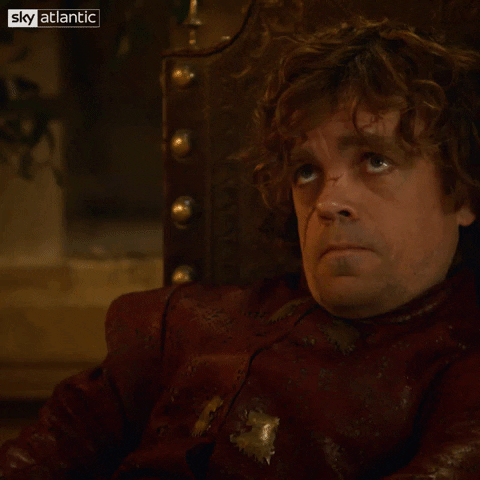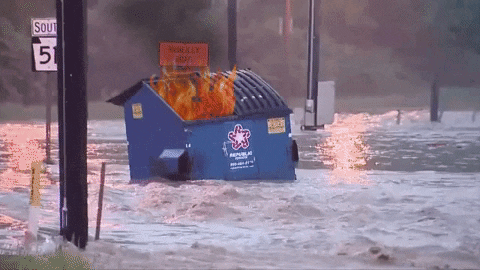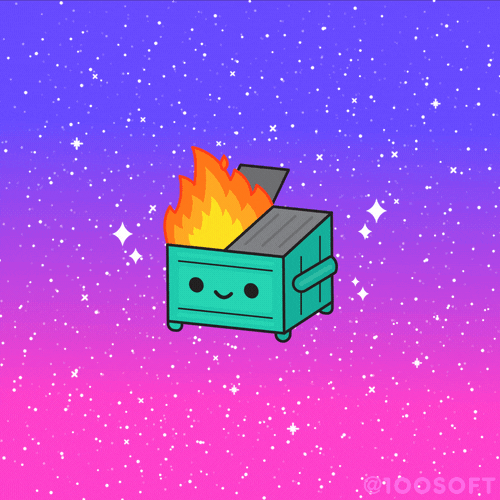You Guys, The Fifth Circuit Ruled *For* The Welfare Of Indian Children
We almost don't know what to say, yes we do, here's all of it!
Something weird happened last week: The Fifth Circuit US Court of Appeals did something ... good.
Texas Governor-in-Waiting/Attorney General Ken Paxton, joined by the AGs of Louisiana and Indiana, is suing in an attempt to get courts to declare that white people have a right to steal Native American kids from their families and redistribute them amongst themselves. A district court judge obliged. Then, last week, the Fifth Circuit pushed back.
If I think too long about what it means that the Fifth Circuit is the voice of reason, here, I might start to bleed from my ears. So instead I'm just going to raise my glass to this rare Nice Time brought to us courtesy of the United States Court of Appeals for the Fifth Circuit.

The Fifth Circuit
The Fifth Circuit, which covers Texas, Louisiana, and Mississippi, is the most conservative of the federal appellate courts and known the world over for its excellent decisions. The Fifth Circuit has given us some real gems, like the time it sanctioned a high school cheerleader for suing the school that tried to force her to cheer for her rapist, when it gave a thumbs up to Texas's "evil black guy" standard , or that time it shut down most of the abortion clinics in Texas .
The Fifth Circuit has been describedas "a bonfire of a court that destroys every hope for equal justice in its path." That's about right. I feel like their vibe is more the fiery depths of hell, or at least dumpster fire floating down the street, rather than bonfire, but to each his own.

But this time, with a reversal of Northern District of Texas Judge Reed O'Connor, the Fifth Circuit is actually in the right.
Now, you might be thinking to yourself, "hmm, Reed O'Connor from Texas, that sounds familiar." Well, that's probably because Judge O'Connor is the poster child for right-wing activist judges. Looking to destroy the ACA? Go to Judge O'Connor ! Want to discriminate against transgender kids? He's your man ! So when Paxton took aim at the Indian Child Welfare Act, he looked in Judge O'Connor's direction.
"I think it was strategic trying to get this case in front of this judge to get this outcome. It's the only court in 40 years that has ever found that ICWA is unconstitutional because it's based on race," says Chrissi Nimmo , deputy attorney general for the Cherokee Nation, one of the tribes involved in the Brackeen case. "If you keep filing the same suit over and over, eventually you're going to get a judge to agree with you."
Like Oneida Nation Chairman Tehassi Hill told Indianz.Com , the people trying to overturn ICWA (pronounced as Ick-wa, not by its initials) "kind of shopped around for a while to find a court that would side with them."
And find that court, they did. Judge O'Connor's order overturning ICWA goes out of its way to verbally fellate Ken Paxton & co. at every turn.
Let's talk about ICWA
In the 1970s, Native American children were systematically being ripped away from their families. By 1978, up to one-third of Native children had been removed from their homes.
As described by Abigail Abrams in Time ,
When Congress passed the Indian Child Welfare Act in 1978, lawmakers from both parties were responding to more than two centuries of efforts by various governmental, religious and social welfare agencies to impose American values onto tribal communities. "There's this continuity of this idea that Indian children don't really belong with their families and they would be better off with white families," says Margaret Jacobs, a historian at University of Nebraska-Lincoln who studies the treatment of Indian children in the U.S.
The most well-known of these policies started in the late 19th century, when the government took many Indian children from their parents and put them in boarding schools to "civilize" them. Children had their hair cut, were required to speak English and were taught Christianity. More than 75% of Indian children in school at the turn of the 20th century were brought up in these boarding schools, Jacobs says.
Federal policy changed in the 1930s when the government realized boarding schools were expensive and were not achieving the goal of assimilation. But they had to find a place for all these children, so they turned to the child welfare system. One infamous federal program called the Indian Adoption Project resulted in hundreds of Indian children in Western states being removed from their parents and given to white families, often several states away. This and other programs like it lasted for about 20 years starting the 1950s. Parents were often pressured to give up children, while others had children taken away because everything from poverty to single motherhood was called "abuse."
A lot of kids were taken from their families because social workers simply didn't understand Native culture. As Congress noted when enacting ICWA, "many social workers, ignorant of Indian cultural values and social norms, make decisions that are wholly inappropriate in the context of Indian family life and so they frequently discover neglect or abandonment where none exists." And not only were children being unfairly taken from their families -- the vast majority of children were also entirely removed from their tribal communities. Between 85% and 95% of Native children were placed in non-Native homes.
In response to this crisis, Congress passed ICWA. Here's how the Native American Rights Fund describes ICWA :
The U.S. Constitution specifically gives Congress the power to legislate for the benefit of Native people and tribal nations. ICWA falls within that constitutional authority because it applies only to children who are either citizens (referred to as "members" in ICWA) of a federally recognized tribe, or who are both eligible for citizenship and the biological child of a tribal citizen parent. In addition, Congress has enacted laws concerning Native children from the earliest days of the United States government. ICWA provides a productive framework for states and tribal nations to partner in protecting the health and well-being of Native children.
ICWA support is nearly universal among child welfare experts.
After the law was passed with bipartisan support, it helped lead to more child welfare legislation, and its principles of providing culturally appropriate services to families and prioritizing placement with relatives are now considered best practices for all children.
ICWA has been hailed as a " gold standard of child welfare policy " by tribal leaders and child welfare experts alike.
So, naturally, Republicans are trying to kill it.
White people just can't help themselves
In addition to Paxton, some right-wing orgs have also jumped in on the fight to kill ICWA. Since 2015, the Koch-funded libertarian Goldwater Institute has been involved in at least a dozen challenges to ICWA. (In case you were wondering, its namesake, Barry Goldwater, voted for ICWA.)
Since launching its Equal Protection for Indian Children over five years ago, The Goldwater Institute has relentlessly spearheaded and supported anti-ICWA litigation in coalition with members of the for-profit adoption industry and religious organizations. The institute is funded by Trump's biggest campaign donor , the Mercer family, and other powerful political influencers including the Koch Brothers and the DeVos Family. For years their unprecedented and fringe legal arguments against the constitutionality of ICWA have been partially or completely thrown out. Friday's decision was the first time their legal strategy stuck .... The deep pockets funding the Goldwater Institute, like the Koch Brothers, are substantially invested in the oil, gas and other extraction industries. American Indian reservations comprise only 2 percent of all land in the United States but hold an estimated 20% of oil and gas reserves, 50 percent of uranium reserves, and 30 percent of all coal west of the Mississippi.
The people challenging ICWA argue that it's an unconstitutional law based on race. Racial discrimination receives the highest level of scrutiny from courts. As The Atlantic summed it up, "This is the crux of their argument: The preference given to Native American foster parents is unfair, both to non-Native foster parents and to Native kids."
The thing is, ICWA isn't actually based on the race of the child. ICWA's definition of "Indian children" is about tribal membership, not ancestry or genealogy. Each tribe has its own criteria for determining tribal membership. Not all Indian children are Native American, and not all Native Americans are considered Indian under ICWA.
"Nearly every federally recognized tribe" is involved in defending ICWA in this latest attack. A total of 325 different tribal nations, 57 Native organizations, 21 states, 31 child welfare organizations, 7 members of Congress, and dozens of scholars of federal Indian law and constitutional law all jumped in to defend ICWA.
The war against ICWA doesn't threaten only this one law. If courts accepted Judge O'Connor and Ken Paxton's reasoning, it could threaten basically all US American Indian law. Here's how The Atlantic summed it up:
At the heart of the ... argument [against ICWA] is the assertion that ICWA treats American Indians as a racial group, and not a political one. This is radical: Every law that involves American Indian communities, reservations, and tribes is rooted in the notion that tribes are sovereign political entities, similar to other countries (American Indians are citizens of their tribes as well as citizens of the United States). Tribes fear that invalidating ICWA on a racial basis has the potential to create a domino effect, bringing down the rest of American Indian law with it.
“Make no mistake, this is an intentional and direct attack on tribal sovereignty and our families and children,” Sa… https: //t.co/zcNDlEu5a6
— indianz.com (@indianz.com) 1540309139.0
To many Indians, ICWA itself is also about more than just what the law mandates.
ICWA was also an acknowledgment, by the United States government, of the numerous battles for the dignity of Native communities that came before it as well as a commitment to do better by tribes and Indian families.
Fifth Circuit to Judge O'Connor: Go home, you're drunk
Thankfully, the Fifth Circuit told Judge O'Connor to go fuck himself, albeit in a much more polite and legalistic manner. Previously, the Fifth Circuit had issued a stay, to stop Judge O'Connor's ruling from going into effect -- though that didn't stop Paxton from sending letters instructing "the Department of Family and Protective Services to stop complying with ICWA and to stop adhering to Bureau of Indian Affairs regulations that were written to strengthen compliance with the law."
Principal Chief Bill John Baker of the Cherokee Nation , Chairman Robert Martin of the Morongo Band of Mission Indians , Chairman Tehassi Hill of the Oneida Nation , and President Fawn Sharp of Quinault Nation , the four tribes defending the lawsuit, issued a joint statement:
The Fifth Circuit Court of Appeals reaffirmed what we already knew: the Indian Child Welfare Act is constitutional and serves the best interests of children and families. We are pleased that the court followed decades of legal precedent in its ruling, preserving a law that protects Indian children and allows them to retain their identity by staying within their families and tribal communities.
Despite the misguided attacks on the law, today's ruling speaks for itself. ICWA ensures that we have a process in place focusing first and foremost on the welfare and safety of children. This is why so many Americans from across the political spectrum have supported upholding the law. We want to thank the Trump administration, the Department of Justice, Deputy Assistant Attorney General Eric Grant, and the Department of Interior for their hard work fighting on behalf of children.
The Fifth Circuit thoroughly eviscerated Judge O'Connor's opinion. reversing him on everything except whether the plaintiffs had standing to sue. Contrary to the plaintiffs' assertions, the court noted that "[t]he Supreme Court's decisions" with regard to Indian law "leave no doubt that federal legislation with respect to Indian tribes is not based upon impermissible racial classifications."
THANK YOU, FIFTH CIRCUIT!
What now?
Now, we wait. Texas and the other plaintiffs could give up, but that seems unlikely. So they can either ask the entire Fifth Circuit (rather than just a three-judge panel) to hear their case, or they can request cert and try to get the US Supreme Court to step in.
Where things would go if ICWA reached SCOTUS is unclear -- which is a very scary thing, indeed , for Native American tribes.
Nearly every part of American Indian law is grounded in the idea that tribes are sovereign political organizations within the larger country, or "domestic dependent nations," in the words of the Supreme Court. This has meant that tribes have their own governments, courts and social service systems, but they receive certain funding from the United States. It also means they, like the U.S. or any other nation, choose their own membership criteria.
In 2013, SCOTUS ruled in favor of a non-Native couple in Adoptive Couple v. Baby Girl. While Adoptive Couple v. Baby Girl was an ICWA case, the Court sidestepped the direct challenges to the law brought up by the case when ruling for the adoptive couple. Since, the addition of Brett "I like beer" Kavanaugh to the Court has likely made SCOTUS even more hostile than it otherwise was towards Native American rights and Indian self-determination.
But, for now, at least, ICWA is safe.
NICE TIMES!
So here's a happy dumpster fire in space instead of an angry one floating down the street.

[ Fifth Circuit / ND Texas / Indianz.Com / Indians.Com again / NICWA / Time / NARF / The Atlantic ]
Wonkette is the best, smartest, nicest website on the Internet. Will you please give us some money?




Mormons like to steal Native American children because they think it helps them get to heaven or something. They call them Lamanites, and they think God wants them to abandon their tribal ways and turn into white people.
Gorsuch and Roberts have both been good on Native issues so far. Of course, they are the only members of the court with any significant experience with Indian Law, so that isn't all that surprising.